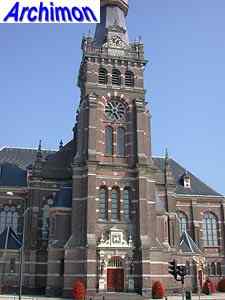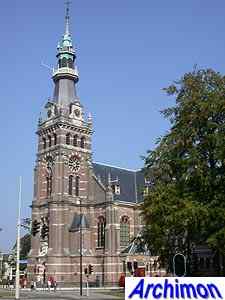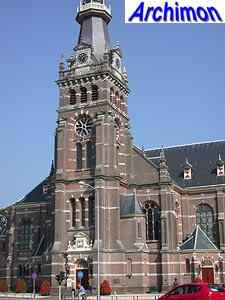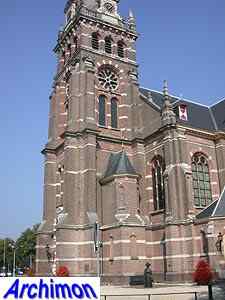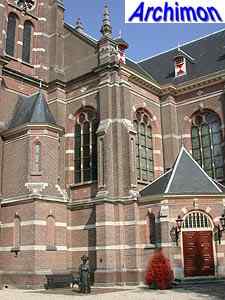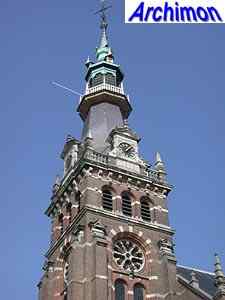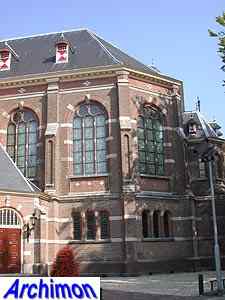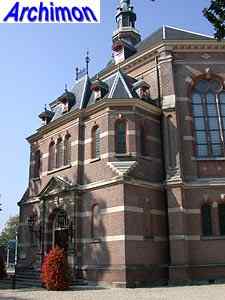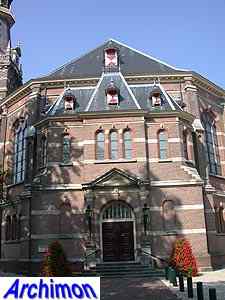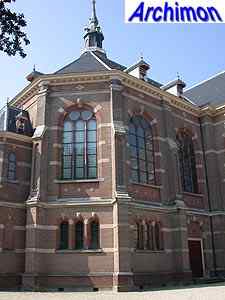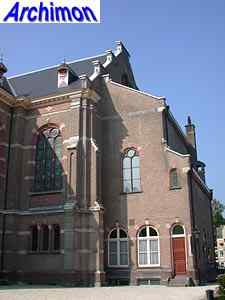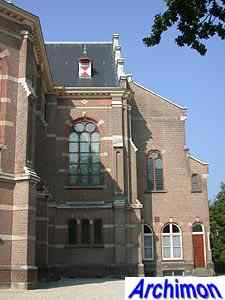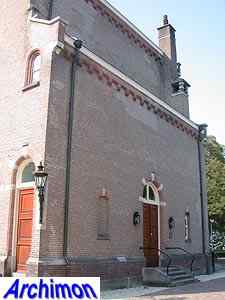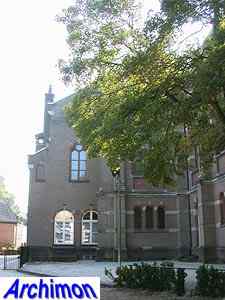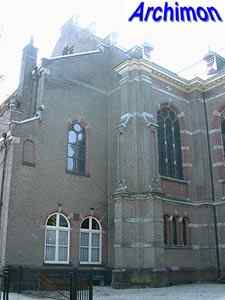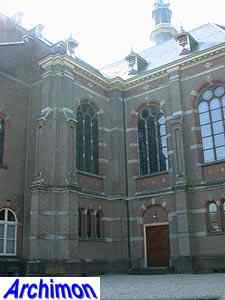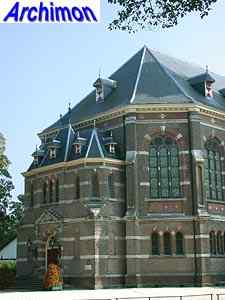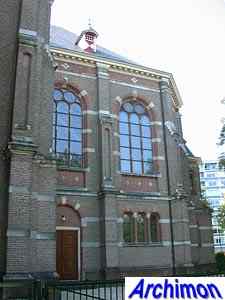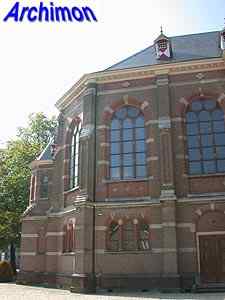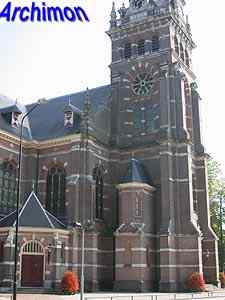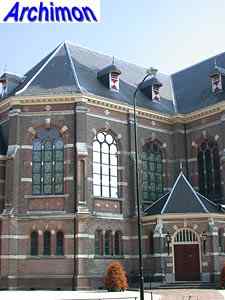
Apeldoorn (G): Grote Kerk (J. Verheul, 1891-1892)
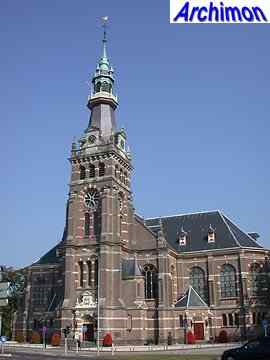 The
reformed Grote Kerk is one of the most important neo-Renaissance
churches in the country, if not the most important. It was built on the
site of a burned-down church built in 1839-184, designed by architect
H. Springer and financed by king Willem I. That church itself
replaced the old village church, was located halfway between the old
church and palace Het Loo and served as a "royal" church as well as a
village church.
The
reformed Grote Kerk is one of the most important neo-Renaissance
churches in the country, if not the most important. It was built on the
site of a burned-down church built in 1839-184, designed by architect
H. Springer and financed by king Willem I. That church itself
replaced the old village church, was located halfway between the old
church and palace Het Loo and served as a "royal" church as well as a
village church.
Soon after that church was destroyed in
1890, a competition was held. A selected group of architects was
invited to send in a design. The fact that local architect Wijn was not
one of the chose few caused some outrage in the village, Although the
competition was won by P. du Rieu, the church counsil
chose the design entered by J. Verheul instead,
possibly because Du Rieu's design was too expensive to
realise.
Verheul, an architect from Rotterdam, changed his design in
several ways, but the essence of the design remained the
same: a big centralising, cruciform building, strongly inspired by
Dutch
Renaissance churches of the early 17th century with a big
tower. The west and east arms are long and have
polygonal
ends with monumental portals, while the north and south arms are short
and straight. Against the southern arm stands the tower, flanked by two
more portals. The tower is richly detailed and is crowned
with a
tall spire. The entire church was built of bricks mostly, but
horizontal layers of sandstone add some colour.
In
1973 the church was in a bad state, and plans were made to replace it
by a block of flats, with a new "church" in the basement. Thanks to a
foundation, the church was saved and restored in 1983-1992.
